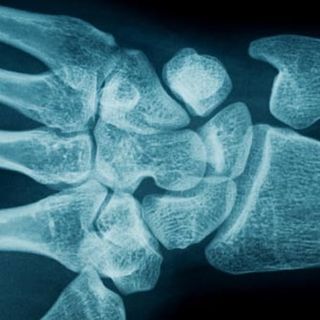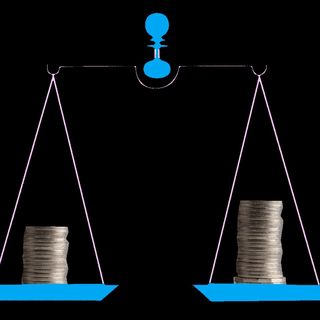Since calorie restriction wasn’t extreme enough, we now have the 23:1 fast, or, the One Meal A Day (OMAD) diet — which restricts food intake to a single meal a day, during the one hour in which eating is allowed. The other 23 hours are spent fasting.
Yes, that is correct: Followers of this diet do not eat at all for 23 hours of each day.
The OMAD diet also comes with a bunch of rules, according to what sports dietician Dana Angelo White told Health. The 1-hour meal must fall within the same 4-hour time-block every day. The meal must also be consumed in a standard dinner plate (not bowl); the meal cannot rise more than 3 inches off the plate, and only zero-calorie beverages like black coffee or water can be consumed during fasting hours. The upside to this rule is that during the single eating hour each day, one can consume anything they like, as much they like, without paying attention to nutrition or caloric value.
If this sounds like the weight-loss dream, the ascetic ideal — not so fast. This version of starvation comes with an array of health problems. And the absolute, all-important, worst-of-all terrors? It won’t make anyone skinny, either.
Related on The Swaddle:
Could Intuitive Eating End Diet Culture?
Positive research surrounding intermittent fasting exists, which lets one eat multiple meals a day and yet fast for a certain period of hours. However, these benefits are proven only for certain people. People can even sustain one meal a day fasts for temporary periods of time. However, the result of eating just one meal a day for longer periods of time like weeks and months will definitely be hunger pangs and fatigue, which will lead to less willpower, more eating and thus, eventual weight gain. “While people on this restrictive OMAD diet will initially lose weight, it’s not very sustainable,” nutritionist David Friedman told Mel Magazine. “In fact, research shows it may even cause you to gain weight in the long run — skipping meals puts your body into a feast-or-famine, survival mode, which makes your cells crave more food. When you eat more, it stores the food as fat. Because of the larger calorie allowance on the OMAD diet, people tend to gorge, which can lead to weight gain over time.”
Some risks of eating one meal a day include fatigue, irritability, inability to concentrate and hunger pangs, according to Medical News Today. If there’s no control over what one is eating, one meal a day can lead to high blood pressure and cholesterol. Eating one meal a day makes one’s digestive system work harder to process food, making the heart work harder to send extra blood to the gut, raising blood pressure and increasing one’s risk for heartburn, according to Friedman. Plus, for individuals with diabetes and hypoglycemia, eating multiple times a day is non-negotiable.
Related on The Swaddle:
Untrending: The Keto Diet Might Help Weight Loss, But That Doesn’t Make It Healthy
Eating one meal a day also opens up the risk for binge eating disorder — a psychiatric eating disorder characterized by multiple episodes of binge eating alternating with feelings of shame and distress.
“This is not a diet that can be sustained for a long period of time, therefore, as a registered dietitian, I do not endorse this weight loss diet approach. … The OMAD diet can be extremely dangerous for children or young adults, people with diabetes or hypoglycemia, obesity, or metabolic rate issues, and it may increase the risk of binge eating,” Katherine Marengo, LDN, RD, told Healthline.
Whether it be one meal a day, or a cleanse, or any other ridiculous new diet trend, let’s just remember to take them all with a significantly heavy pinch of salt. When it comes to diet, a nutritionist who understands individual bodies and their strengths and weaknesses will always know best. Fads will never taste half as good as science feels.




